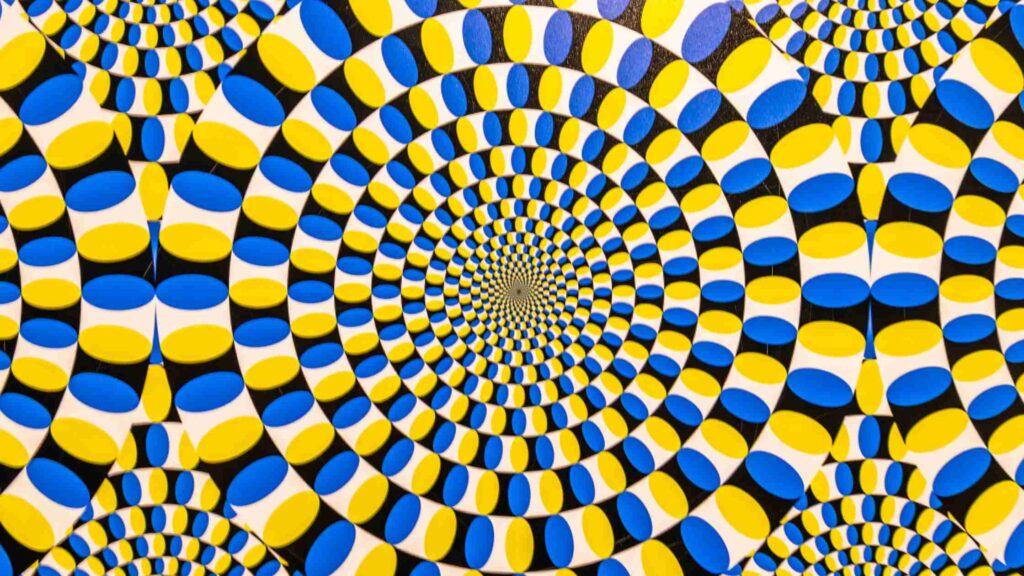Introduction: Is Reality Just an Illusion?
Have you ever questioned the nature of reality? Are we truly perceiving the world as it is, or is our perception just an illusion? These profound inquiries have puzzled philosophers, scientists, and spiritual seekers for centuries. In this blog post, we will delve deep into this thought-provoking topic and explore the startling truth about the nature of reality. Get ready to have your mind blown!
Understanding Perception

Perception is the lens through which we experience the world around us. It involves our senses, cognitive processes, and interpretation of the information received. However, what we perceive may not always align with the objective reality.
The Role of the Senses
Our senses are the primary tools through which we interact with the external world. Sight, hearing, touch, taste, and smell provide us with valuable information about the environment. But are our senses infallible?
Research has shown that our senses can be easily deceived. Optical illusions, for example, demonstrate how our eyes can be tricked into perceiving something that doesn’t exist. Similarly, auditory illusions can challenge our perception of sound.
The Influence of Cognitive Processes
Our cognitive processes play a significant role in shaping our perception of reality. The brain filters and interprets the information received from our senses based on our previous experiences, beliefs, and biases. This filtering process can lead to subjective perception and the creation of an individual’s reality.
The Illusion of Consensus Reality
Consensus reality refers to the shared understanding of the world that is agreed upon by a group of individuals. It is the collective perception of reality that is formed through cultural, social, and educational conditioning.
Social Construction of Reality
Social constructionism suggests that reality is not an objective truth but a product of social interactions and agreements. The beliefs, norms, and values of a particular society shape the reality experienced by its members. This theory challenges the notion of an absolute reality and emphasizes the role of human perception in constructing the world.
Cultural Relativism
Cultural relativism asserts that reality is relative to the cultural context in which it is observed. Different cultures may hold contrasting views on what is real and valid. For example, beliefs about the afterlife or supernatural phenomena vary across different societies. This highlights the influence of cultural factors on our understanding of reality.
The Quantum Enigma

Quantum mechanics is a branch of physics that studies the behavior of matter and energy at the smallest scales. It has challenged our conventional understanding of reality and introduced mind-boggling concepts.
Wave-Particle Duality
One of the fundamental principles of quantum mechanics is the wave-particle duality. It suggests that particles can exhibit both wave-like and particle-like properties depending on how they are observed. This phenomenon challenges our intuitive understanding of reality and raises questions about the nature of matter.
Quantum Superposition
Another mind-bending concept is quantum superposition. It states that particles can exist in multiple states simultaneously until they are observed or measured. This implies that the act of observation collapses the superposition into a single reality. It implies that our observation itself influences the outcome and shapes the reality we perceive.
The Simulation Hypothesis
The simulation hypothesis proposes that our reality is a computer-generated simulation created by a more advanced civilization. This notion, popularized by Elon Musk and other futurists, suggests that our entire existence may be a meticulously designed virtual reality.
Evidence and Arguments
While the simulation hypothesis is purely speculative, some arguments and thought experiments support this intriguing idea. One such argument is the exponential growth of computing power. If technological evolution continues at its current pace, it is plausible that future civilizations could create simulations indistinguishable from reality.
Additionally, anomalies in the laws of physics and the existence of mathematical patterns in nature have been cited as possible hints of a simulated reality. However, these arguments are highly debated, and no conclusive evidence has been found to confirm or refute the simulation hypothesis.
Eastern Philosophical Perspectives
Eastern philosophy offers profound insights into the nature of reality through concepts such as Maya, Advaita Vedanta, and Zen Buddhism.
Maya: Illusion of the World
Maya, a concept in Hindu philosophy, suggests that the world we perceive is an illusion, obscuring the ultimate reality (Brahman). According to this perspective, our attachment to the illusory world creates suffering and prevents us from realizing the true nature of existence.
Advaita Vedanta: Non-Dual Reality
Advaita Vedanta, a philosophy rooted in Hinduism, posits that there is a single, non-dual reality (Brahman) behind the apparent multiplicity of the world. It suggests that our perception of separateness is an illusion and that true reality is beyond the limitations of the mind and senses.
Zen Buddhism: Direct Experience
Zen Buddhism emphasizes direct experience as a means to transcend conceptual thinking and penetrate the true nature of reality. By practicing mindfulness and meditation, Zen practitioners aim to attain a state of awareness beyond the illusions of the mind.
Conclusion

The nature of reality remains an enigmatic and complex subject. From the limitations of our senses and cognitive processes to the profound implications of quantum mechanics, our perception of reality is far from straightforward. Whether reality is an illusion or an objective truth may never be definitively answered.
What matters is the contemplation of these questions and the exploration of different perspectives. By expanding our understanding and challenging our assumptions, we can embark on a journey of self-discovery and open ourselves to new possibilities. So, take a leap into the realm of the unknown and discover the profound beauty of the mystery we call reality.
Disclaimer: The views expressed in this blog post are for informational purposes only and do not constitute professional advice. The author and the website are not responsible for any consequences arising from the use of the information provided.






